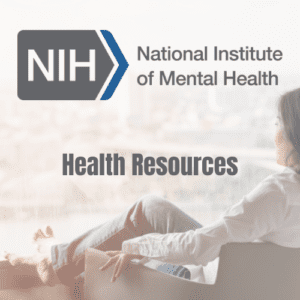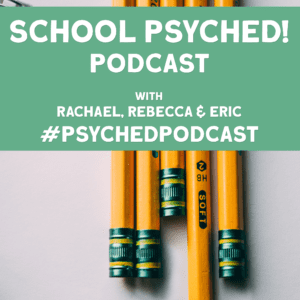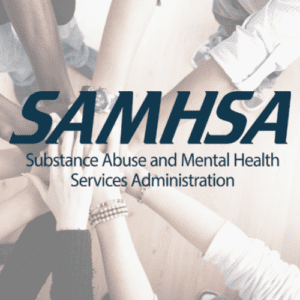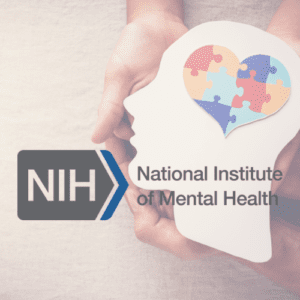
Digital Journals
Track your moods, thoughts, and feelings. Reflecting regularly can provide clarity and facilitate discussions with
Your mental well-being is vital. As you navigate the intricate pathways of life and the challenges it presents, having the right tools and resources can make all the difference. Whether you’re a patient, caregiver, clinician, or someone looking to expand their understanding, our curated collection is here to guide and support you.

Track your moods, thoughts, and feelings. Reflecting regularly can provide clarity and facilitate discussions with

Here’s a basic mental health glossary that provides definitions for common terms. Please note that

Engage in guided meditations, breathing exercises, and daily mindfulness practices. Perfect for those seeking calmness

Are you looking for ways to raise awareness about mental health in your community? You

Online support groups are versatile and encompass a broad range of topics, including mental health,

Expand your knowledge. Tune into expert-led sessions on various topics from coping strategies to advanced

By Dr. Corey Milsap, PsyD, LPC, CSP, LSP, LMHC The mental well-being of children is receiving increasing attention, with anxiety and Attention Deficit Hyperactivity Disorder (ADHD) emerging as dominant concerns.

By Dr. Corey Milsap, PsyD, LPC, CSP, LSP, LMHC Children naturally experience moments of worry or sadness. However, when these emotions become prolonged or intense due to conditions like anxiety

By Dr. Corey Milsap, PsyD, LPC, CSP, LSP, LMHC Secondary traumatic stress, sometimes termed “compassion fatigue,” is a psychological phenomenon that occurs when individuals are indirectly exposed to traumatic experiences

SPP 182: Upping Your Report Writing With ClickReport Join #psychedpodcast as well welcome back fellow school psych, Jenna! You can catch our first episode on ClickReport here: https://www.youtube.com/live/Xl-DgSKMZQ4?si=YrSjuUv93X6_hPR7 Read her story here: MY NAME IS JENNA AND I HAVE BEEN YOU… I know how it feels. I entered the field of school psychology because I… Continue reading SPP 182: Upping Your Report Writing With ClickReport
SPP 181 – Systemic Self-Care #psychedpodcast is so excited to have Dr. Imad Zaheer back! Tune in Sunday night for a great conversation. https://www.researchgate.net/profile/Imad-Zaheer https://pubmed.ncbi.nlm.nih.gov/37561430/ https://docs.google.com/presentation/d/1rbuh09fPWnYu-5L1ESA2X1xUxSimwOYz/edit?usp=drive_link&ouid=104669229091021738930&rtpof=true&sd=true https://drive.google.com/file/d/1B7URpsooWueVyalpW1gu7-48FklcIp4h/view?usp=drive_link Dr. Imad Zaheer is an Assistant Professor of School Psychology in the Department of Psychology, at St. John’s University. Dr. Zaheer is a pediatric school psychologist and has… Continue reading SPP 181 – Systemic Self-Care
SPP 172: NASP President Dr. Andrea Clyne Join #psyched podcast as we speak with our NASP president! https://www.nasponline.org/about-school-psychology/media-room/files/meet-the-2023%E2%80%932024-nasp-president-dr-andrea-clyne Andrea Clyne, PhD, LP, is President of the National Association of School Psychologists (2023–2024) and a licensed school psychologist with over 30 years of experience as a school-based practitioner in Colorado. Andrea has spent many years working… Continue reading SPP 172: NASP President Dr. Andrea Clyne

Note: While these tools and resources offer support, they aren’t a replacement for professional medical advice, diagnosis, or treatment. Always consult a healthcare provider for personal advice.

Nearly 1 in 10 people in the U.S. will have an eating disorder during the course of their lifetime. Some of these conditions can be serious, and potentially even fatal. It’s critical to break the silence and raise awareness about this public health problem. This week marks National Eating Disorders Awareness Week, a time to increase understanding, reduce stigma, and share messages of support and hope for those impacted. It also provides an opportunity to highlight available resources for those looking for help.
Many people make new promises to their health and well-being at the beginning of the year. To emphasize the value of expanding access to treatment for substance use disorders (SUDs), SAMHSA is launching “SUD Treatment Month” in January. This annual observance will be dedicated to spreading awareness about the effectiveness and availability of SUD treatment, giving people hope, and connecting individuals to treatment services and recovery supports that can improve their health and make their lives better. What Is Substance Use Disorder?
Substance Use Disorders (SUDs) are chronic disorders of the brain with a risk of recurrence but from which people can, and do, recover. Like other medical conditions, some people are more susceptible to developing a SUD than others.
“New year, new me!” This common phrase, echoed each year in January, embraces the air of change that comes with a new year. While it is not necessary to wait until a new year to make changes for our health, January is a time for fresh starts. Embracing the spirit of opportunity and change, January 2025 will mark SAMHSA’s first annual Substance Use Disorder (SUD) Treatment Month. Each week in January will feature a theme:
December is a month of transition, as many communities across our country make the shift from cool, bright autumn days to longer, colder nights. As we busily prepare for upcoming meals and seasonal celebrations with friends and family, it is an apt time to reflect on what home means to us. Protection from the elements, a place to store our treasures and life’s necessities, a site of belonging and being with the people we love, somewhere soft to lay our head each night, and a place we can return to ourselves day after day – home can mean so much.



The National Institutes of Health has funded six projects to develop, test, and validate outcome-focused quality measures for mental health, which are used to understand the impact of interventions when implemented in real-world health care systems and settings.
A new study funded by the National Institutes of Health uncovered patterns in the activation of old and new memories during sleep that keep these memories separate.
In a study funded by the National Institutes of Health, researchers created new suicide risk prediction models using data in electronic health records from the Indian Health Service.
In a study supported by NIMH, researchers revealed the structural underpinnings of memory formation across a broad network of neurons in the mouse brain.
Posttraumatic Stress Disorder (PTSD)

LAYNE CENTER
Physical Address:
165 Bradford Square, Suite A, Fayetteville, GA 30215
Mailing Address:
250 Georgia Ave E, Unit 142181
Fayetteville, GA 30214
Phone 678-833-5395
Fax 844-799-6134